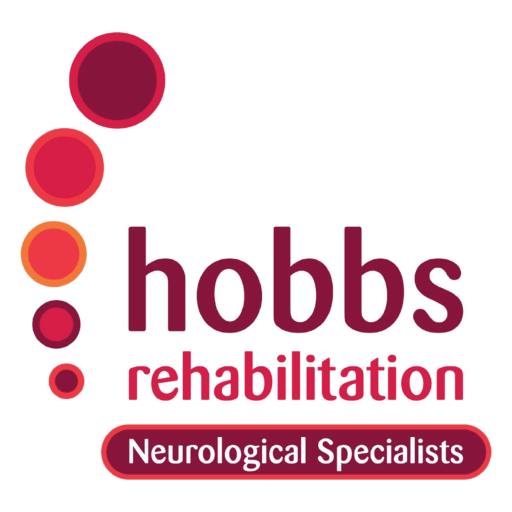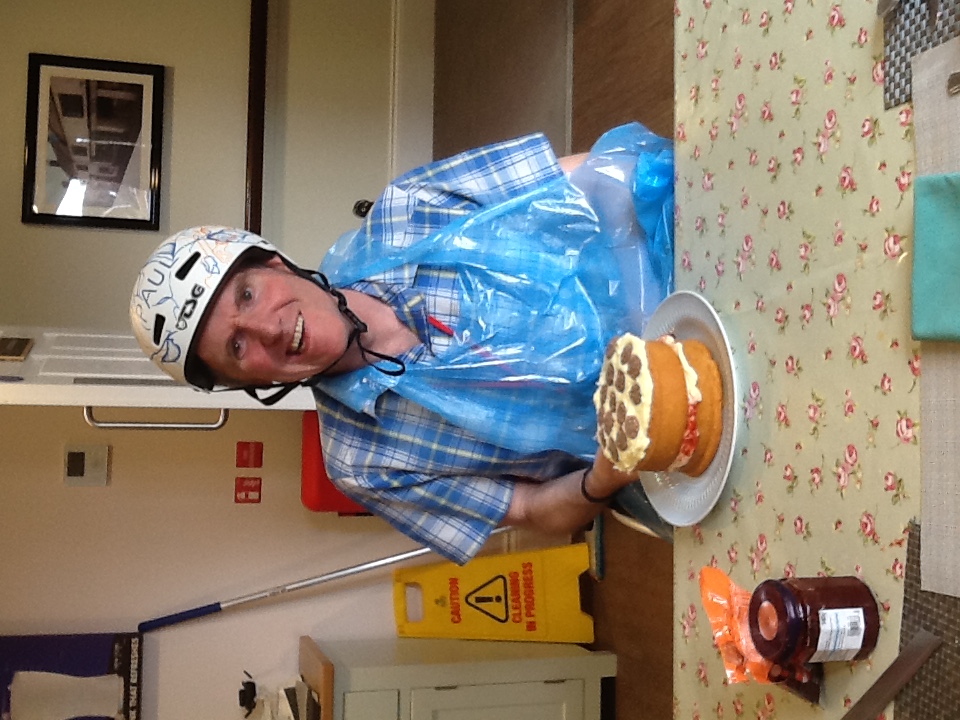Paul was a keen cyclist and someone who loved to cook – the chef of the house. He was an active professional electrical engineer with no underlying health issues when he fell victim to a stroke…
Paul was a keen cyclist and just before Christmas, he suffered a stroke on the right side of his brain. He needed a hemi craniectomy (a large part of the skull removed to allow room for brain swelling). He spent just over a month in the hospital before coming to Hobbs Rehabilitation in Liss – which was funded by his NHS Clinical Commissioning Group (CCG).
When the Hobbs Rehabilitation therapists met Paul, he was finding it a challenge to cope with everyday tasks such as washing and dressing. Paul’s therapists quickly warmed to his open and humorous manner. They found Paul to be highly motivated despite the difficulties that faced him. Paul established goals with his therapists which were meaningful to him such as to be able to eat fish and chips by the sea and to be able to return home to living with his wife. These goals closely incorporated the whole interdisciplinary team including speech and language therapy for strengthening his swallow function and physiotherapy for reducing the amount of support he needed for transferring from chair to bed, for example. Overall, each of
the goals were focussed on Paul’s functional ability to complete tasks that were meaningful to him therefore, Occupational Therapy took a key role in facilitating a holistic person-centred approach to Paul’s therapy. The goal of returning home was broken into different sections that Paul wanted to achieve. For example, it was important to Paul that he was able to manage washing himself more independently. One of Paul’s challenges was attending to his left side. Hannah, the Occupational Therapist, worked repetitively with Paul in using techniques and practising remembering his left side. Through this intensive approach and Paul’s hard work, he was soon able to be left alone in the shower to wash and dry himself without help.
Another of Paul’s roles in the home was doing most of the cooking. Through his therapy, Paul became weary and frustrated at not always feeling like he was in control of what his body could do. In Occupational Therapy, Paul and Hannah used cooking as an activity that he was in charge of. Paul learnt to use adaptive equipment so that he could prepare food independently with the use of his right hand. Paul chose and planned all of the food and found great joy and pride in being able to make a Victoria Sponge cake to share with his wife to celebrate their wedding anniversary.
Paul explains that “Hobbs therapists are friendly and sympathetic and fully understand the difficulties of someone recovering from stroke”.
He also explains that Occupational Therapy was, unexpectedly, the highlight of his admission. He had been unsure how or whether he would be able to find ways to regain those skills that meant so much to him, but through Occupational Therapy sessions he has.
Paul is now back at home and continues to have rehabilitative therapy with Hobbs Rehabilitation, which he now privately funds. He is working hard and hopes to be able to walk his daughter down the aisle when she get married next year!

